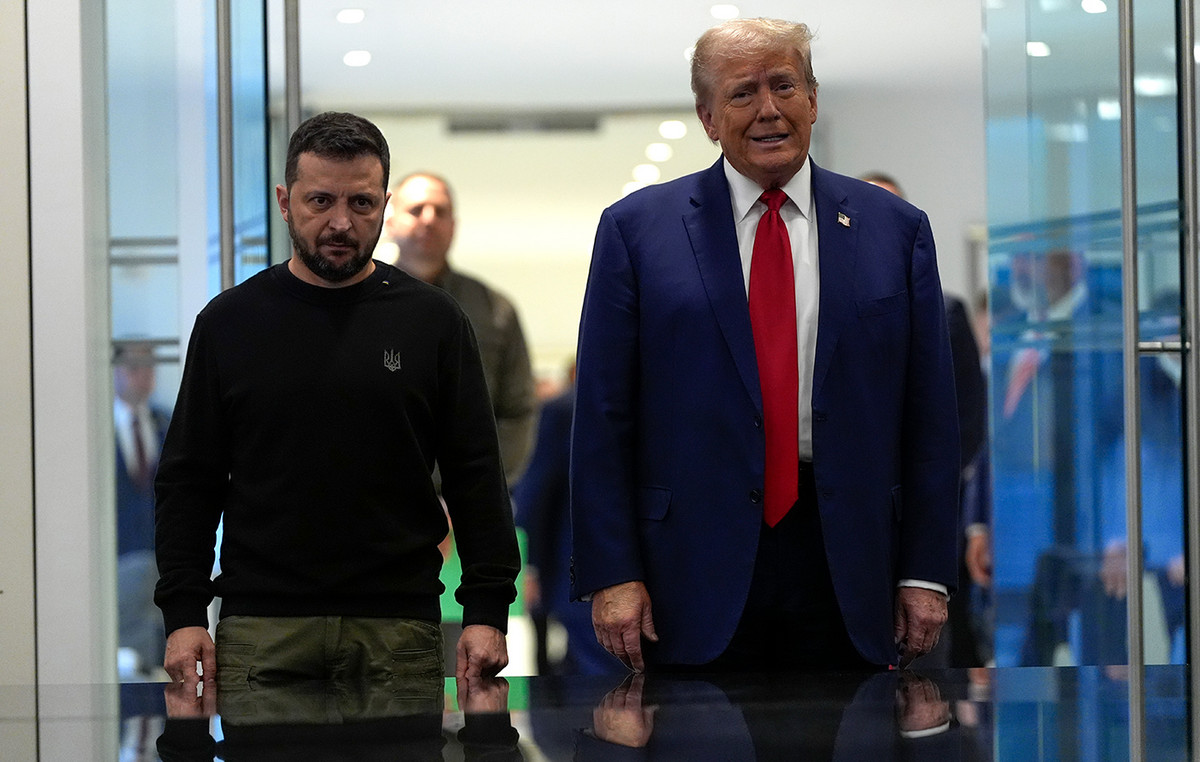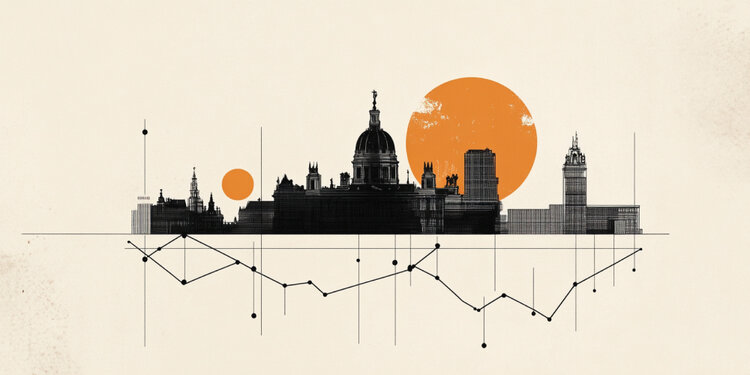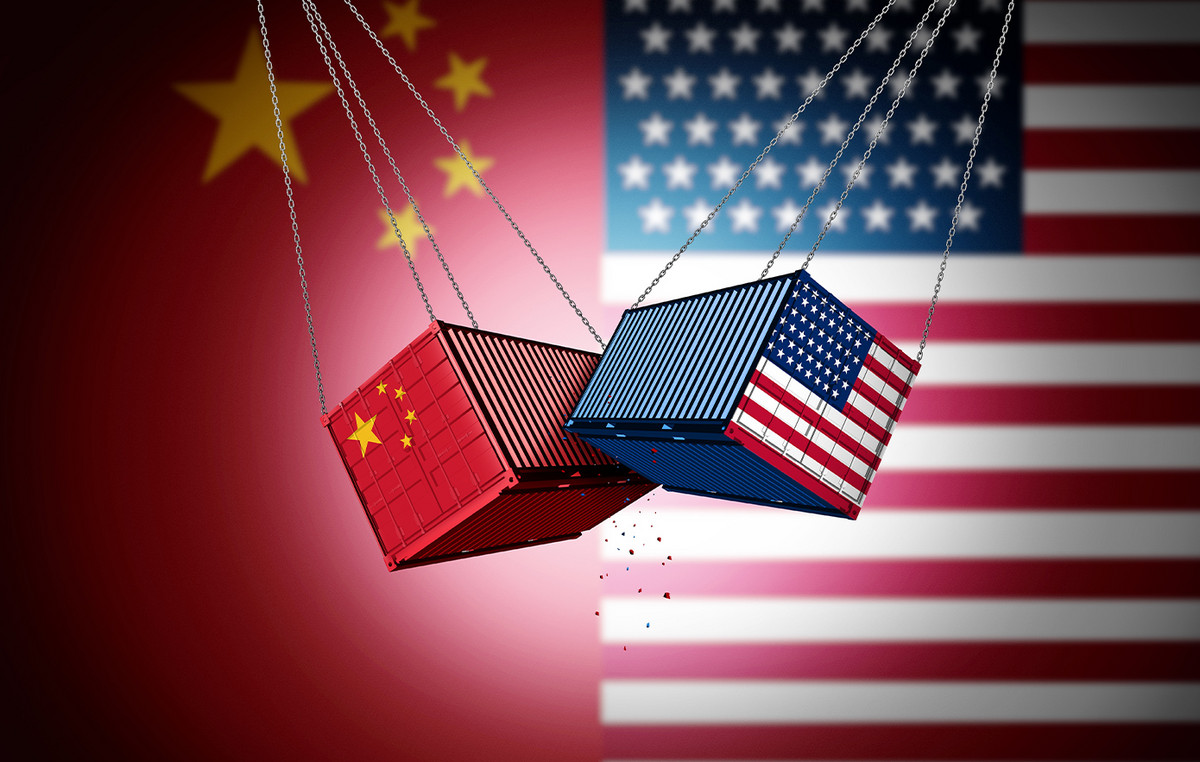In 2008, Marvel Studios launched its own cinematic universe with the release of the first Iron Man. This has become a truly unique phenomenon in cinema. Despite the fact that the Marvel Cinematic Universe is almost 15 years old and almost all major studios wanted to create something similar, no one has yet succeeded (you can recall the failures of Universal with its monsterverse or Warner Bros. with the DC universe, which still has no logic).
Why did the Marvel movies work?
In the first films, the studio carefully built the story of its own world, explaining the rules and talking about its different facets. The scientific achievements of Tony Stark, the alien origin of Thor, and so on. All stories converged into one in large crossovers. Then each new film took into account all the events of the previous ones and it worked well. Of course, with the expansion of the universe, Marvel had inconsistencies, magic was added that breaks established rules, an imbalance in the strength of some heroes appeared, problems with uniqueness began (many new films, especially the first solo films – origins, followed a standard and proven storytelling scheme), and so on. . But all this did not stop telling related stories and reducing them to such epic pictures as Avengers: Endgame.
“Wanda/Vision”
- Kinopoisk: 7.5.
- IMDb: 7.9.
In the next phase of the MCU (after the fourth “Avengers”), Marvel Studios wanted to use series to expand the possibilities for telling non-standard stories. She has withdrawn the rights from all partners (ABC, Netflix, Hulu) and has taken over the production of shows for Disney +, where the library of Marvel films is located. On January 15, 2021, the first series, WandaVision, was released. A huge budget, comparable to the most expensive films, and the heroes of the first magnitude: Scarlet Witch and Vision. Moreover, from the very first episode, viewers received something completely different from anything seen before in the entire cinematic universe – a parody of old American sitcoms.
However, already in the middle of the season, the series turned into a typical superhero project with all possible cliches, clichés, failures in the motivation of villains, and so on. It also began to catch the eye that the need to stretch the film’s budget for a much longer runtime hit the special effects. As a result, from one hundred percent positive reviews for the first series, the series slipped to much more modest results. Although the project was still firmly connected to the main story, it had enough positive moments and raised hope for a better future for Marvel’s multi-series projects.
“The Falcon and the Winter Soldier”
- Kinopoisk: 6.3.
- IMDb: 7.2.
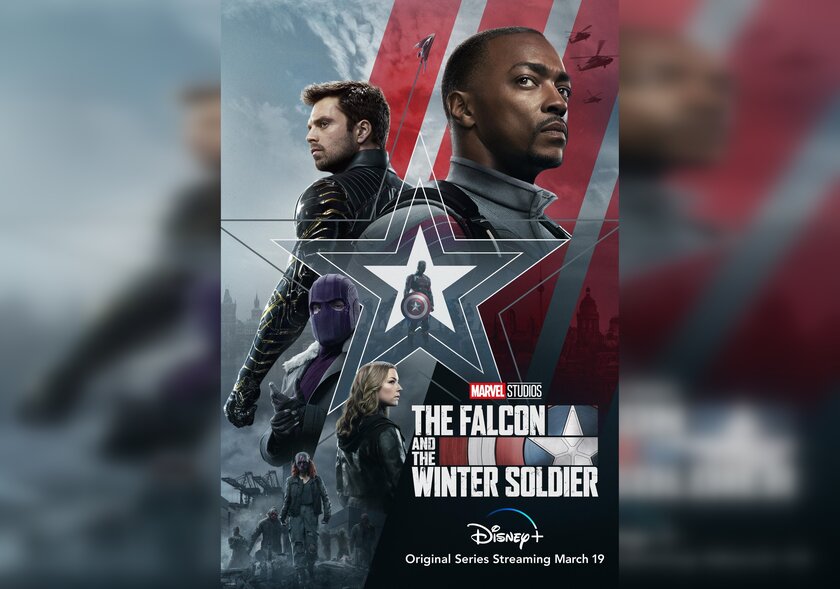
The next serial project of Marvel Studios was The Falcon and the Winter Soldier, where the main problem first appeared – most of the series will still not be about the main characters, but about secondary characters. The fact that this project will not be particularly popular was clear even during the announcement of the first three shows. It was obvious that fans were looking forward to Wanda/Vision, where the characters have various supernatural abilities, as well as Loki, which should be starring the audience’s favorite Scandinavian god of cunning, played by Tom Hiddleston. Sam Wilson (Falcon) and Bucky Barnes (Winter Soldier) are significantly inferior in popularity and interest to viewers.
The series, by and large, has become an ordinary family drama with a dash of action, set within the Marvel Cinematic Universe. Yes, the main characters in it are, albeit minor, but recognizable characters from the films, the story directly follows from the events of The Avengers. And the idea of going deeper into the inner experiences of the characters is a very good one in itself. But the series is boring. If this story were edited into a film, it would become the most disastrous in the MCU. That is, Marvel Studios showed that some series will be just filler stories that would simply fail at the box office.
“Loki”
- Kinopoisk: 7.7.
- IMDb: 8.2.
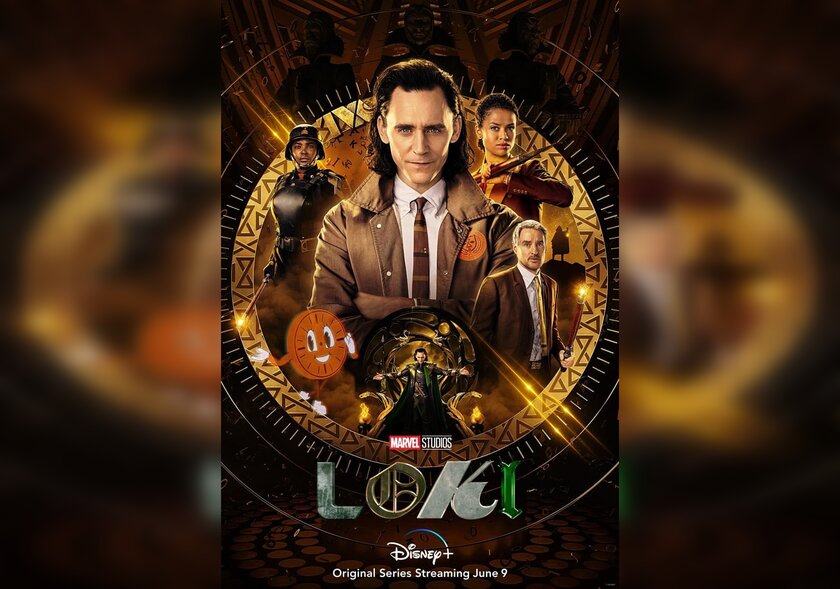
And now Marvel Studios is releasing one of the main projects, which was supposed to prove that the series will also be a very important part of the MCU and should not be missed. This was partly successful, because Loki is still the best show in the opinion of the audience. And the series is actually important, because it was in it that the concept of the multiverse was first introduced, and also, perhaps, one of the main villains of the fourth phase (or even the whole cycle, as was the case with Thanos). But even “Loki” has many obvious disadvantages that spoil the picture of the success of this project and the overall fate of the multi-episode Marvel shows.
Firstly, the series simply spits on the entire legacy of the MCU. For more than 10 years, Marvel Studios has been talking about the formation of a team of defenders of the Earth, whom fate was preparing for a decisive confrontation with the mad titan Thanos. The Infinity Stones, the most powerful artifacts in the world, played a key role in this. And in the very first episodes of Loki, these artifacts are equated with sand. Secondly, questions are raised by the personal line of the protagonist, who clearly does not behave the way the character of the 2012 version (as he is in the story) should behave. When even the best series violates the integrity of the picture, this is a wake-up call.
“What if…?”
- Kinopoisk: 6.9.
- IMDb: 7.4.
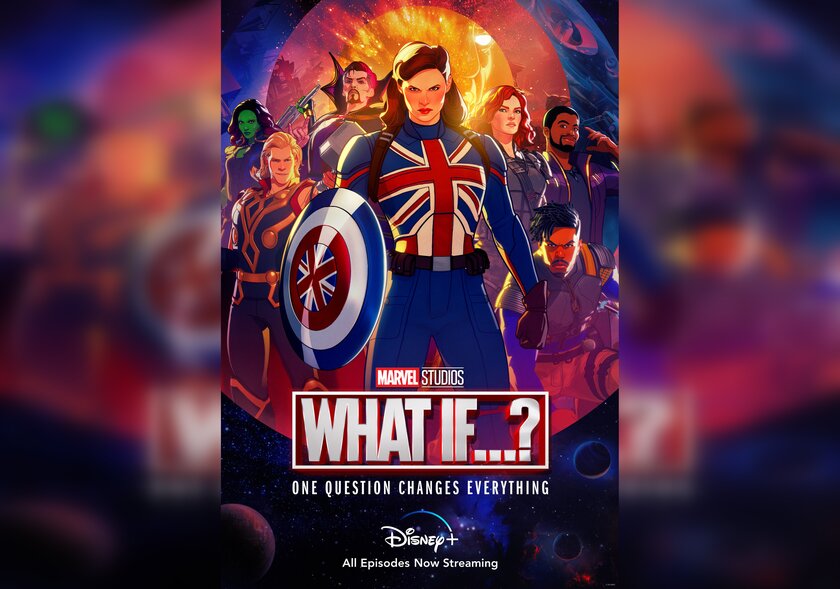
“What if…?” is an animated series consisting of different stories about parallel universes, which are told from the point of view of a powerful cosmic being, the Overseer. An interesting idea in it is to show familiar events from other sides, if one of the characters made a different choice at the key moments of their formation. However, the implementation let us down to such an extent that almost everything turned out badly in the series. The first episodes are almost a frame-by-frame repetition of many scenes with only other characters (Peggy Carter instead of Steve Rogers) previously seen in feature films, which even prompts you to reach for the rewind button.
Also, the animated series continues to break the established rules of the MCU, changing the powers of various characters and artifacts in a rather strange way. For example, in Loki, viewers were told that the Infinity Stones don’t work outside of their own universe, but in What If…? characters with the help of the Stones deal with the strongest creatures of the multiverse. As a result, from the more or less thoughtful details in the first films, Marvel Studios projects are slipping into the usual comic madness. Another problem is that the series is too explicit and too intrusive discussion of some modern agendas, which will carry over to the next shows.
“Hawkeye”
- Kinopoisk: 7.1.
- IMDb: 7.6.
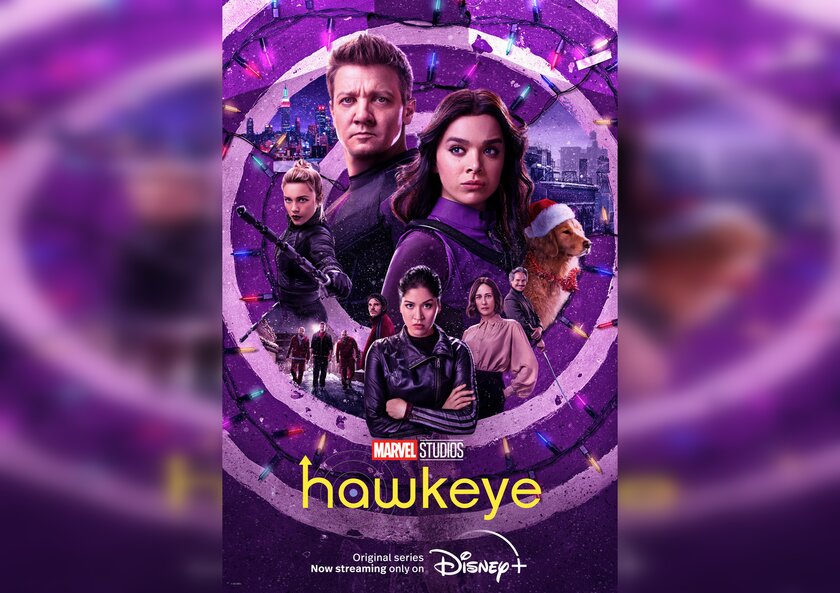
Hawkeye is the last thing I want to scold, because in fact the series turned out to be a kind and cozy Christmas project. The only problem is that it has nothing to do with what the audience expects from Marvel. In general, this project is as full as possible with references to the cinematic universe, however, all of them are exclusively fan service and do not carry a plot load. The series also featured a historical cameo for a character from another series universe. Initially, it causes a lot of positive emotions, but after careful consideration comes the understanding that it is rather unsuccessful.
In general, it seems that every plus of this series has some minus under it. By and large, Hawkeye is just that same filler story that absolutely does not affect the overall picture of the MCU. Here appear absolutely uninteresting characters that are introduced into Marvel to fit the modern agenda. Moreover, about some of them, separate series have already been launched into development, which, obviously, will be promoted only due to the appearance of more famous heroes in them (for example, Daredevil is expected to participate in Echo). Marvel series are moving further and further away from big-budget projects with stars and superheroes of the first magnitude.
“Moon Knight”
- Kinopoisk: 7.2.
- IMDb: 7.4.
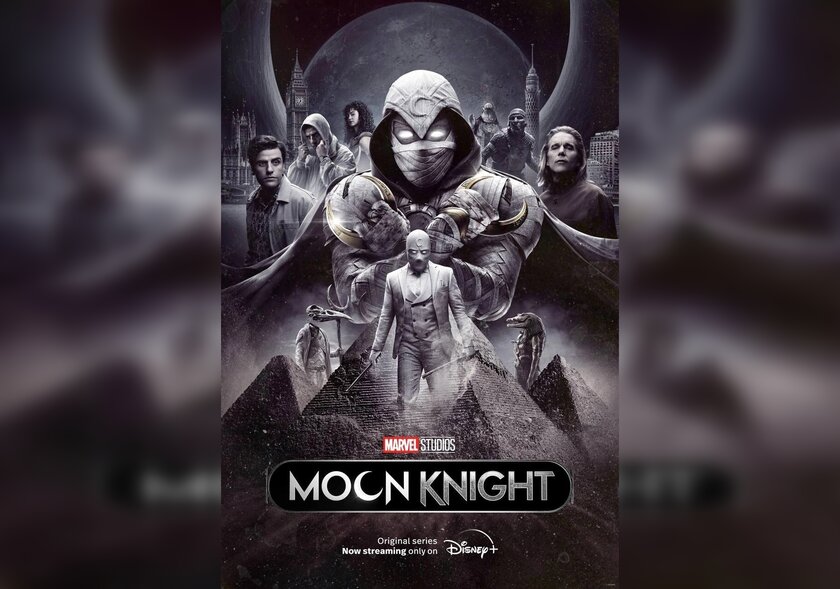
Moon Knight is a very high-quality project in many respects. Obviously, good cameramen, directors and editors worked on it, who achieved juicy and dynamic shots with an unusual style of narration. Starring Oscar Isaac and Ethan Hawke, who gave an excellent performance. But all of the above problems (including breaking the existing laws of the MCU, not understanding where the project is in the overall story, the lack of significant and interesting characters) continue to get worse. Moreover, the question becomes acute that Marvel is not coping with the main task set for itself in the fourth phase.
The studio wanted to bring racial, gender and other diversity to their projects. The first superhero of Chinese origin, Shang-Chi, the first superheroine of Pakistani origin, Kamala Khan, appears, as well as heroes of other origins (who at the same time remain Americans, which raises questions about how non-Americans can not have superpowers). But at the same time, to demonstrate a certain color of Marvel, you have to deviate from established working patterns. By many parameters (spectator interest in the characters, project evaluations, and so on), it turns out that the studio is not very good at this.
“Miss Marvel”
- Kinopoisk: 5.8.
- IMDb: 6.1.
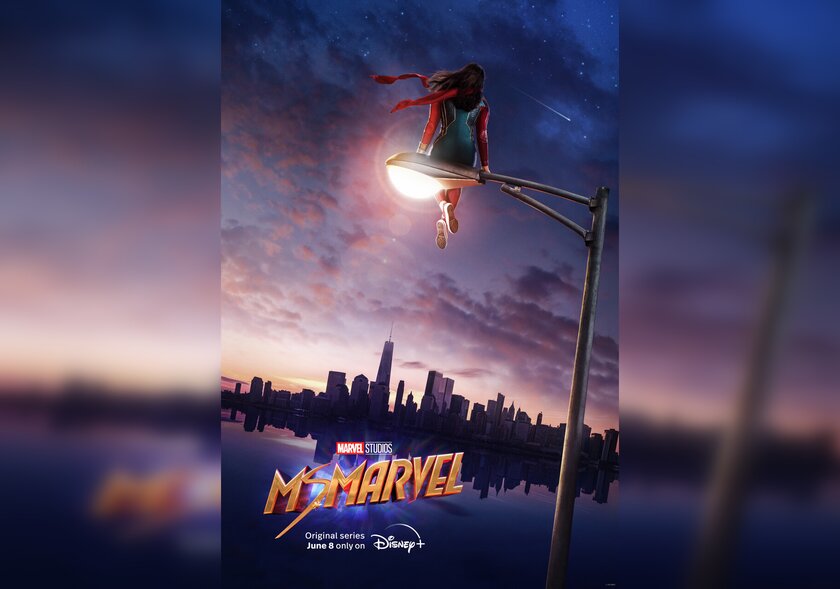
The following series is just the quintessence of the above problem. Ms. Marvel is a completely uninteresting hero. A teen comedy about high school students is not what Marvel fans are waiting for at all. Variety is definitely a good thing. However, with Marvel now featuring Captain Marvel, Peggy Carter as Captain America, female versions of Thor and Hawkeye, and female versions of the Hulk and Iron Man in the making, the question arises: “Where’s the diversity here if they’re all female?” They fought to represent everyone equally, but in the end they won too much.
Unlike all the shows above, which have at least something to justify watching them (famous characters, famous actors, influence on the cinematic universe), Ms. Marvel is a completely passing project. There is a strong feeling that the same fate awaits most of the subsequent series from Marvel: Echo, Armored Wars, Wakanda, and so on. As a result, it turned out that the budget of the films is not enough for the timing of the series. Because of this, either special effects suffer (the eye-catching CGI in Wanda Vision), or the staging (weak action scenes in The Falcon and the Winter Soldier), or you have to save on actors and characters (series about Ms. Marvel, Echo and so on). Of course, the studio began to experiment at least a little and sometimes even successfully (“Moon Knight”), but in general, the situation with Marvel’s series is not very good.
Why is this detrimental to the entire industry?
To answer this question, we have to return to the thesis from the beginning of this article: “The Marvel Cinematic Universe is considered the benchmark in the movie business and everyone wants to repeat this success.” Accordingly, when Marvel Studios announced its intention to go into TV series, many studios immediately realized that endless series of shows is something that can work and keep viewers on the screen for years. And the success of TV shows is measured not by income from cinemas, but by viewing from home, which is much easier to achieve in these times. And now they have begun to announce the development of the spin-off “The Boys” about the school for supers to expand the universe of the series, the show “Continental” in the universe of “John Wick” and many other similar projects. True, unlike Disney, which has a lot of money and the ability to risk it, other studios can save even more on production (special effects / staging / characters). As a result, the serial industry can turn into an endless “soap” without new ideas. After all, why invest in the development of original projects, in the spirit of “True Detective” or “Queen’s Move”, if you can make another spin-off of some popular franchise?
Source: Trash Box
Donald-43Westbrook, a distinguished contributor at worldstockmarket, is celebrated for his exceptional prowess in article writing. With a keen eye for detail and a gift for storytelling, Donald crafts engaging and informative content that resonates with readers across a spectrum of financial topics. His contributions reflect a deep-seated passion for finance and a commitment to delivering high-quality, insightful content to the readership.

